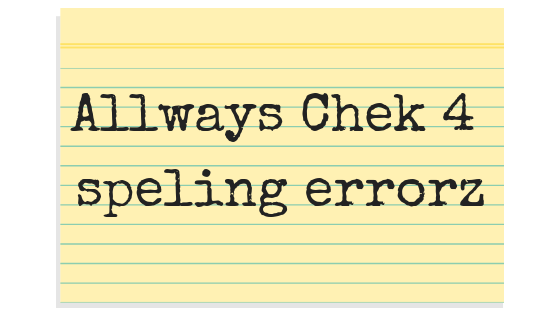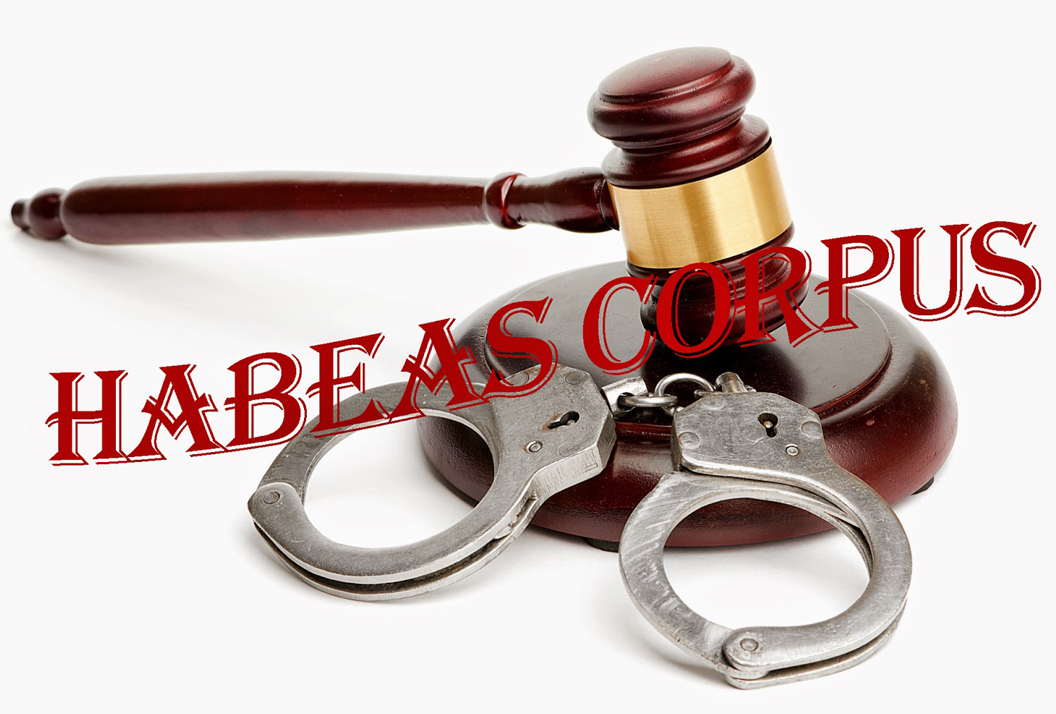We post news and comment on federal criminal justice issues, focused primarily on trial and post-conviction matters, legislative initiatives, and sentencing issues.

DOES INNOCENCE MATTER? NOT MUCH.
I had a recent email exchange with a guy who, years after his conviction, believes he has the golden bullet to convince his judge that he should be allowed to withdraw his plea. When I pointed out he had no procedural route for raising the argument, given that he’s known about the issue for years, he responded that all he has to do is convince the judge of the righteousness of his claim, and the procedure will take care of itself.
 But procedure never takes care of itself. That is to say, procedure rules over substance. Years ago, Professor Henry J. Friendly complained that habeas corpus procedure had gotten so hidebound that a petitioner’s claim that he or she was actually innocent simply didn’t matter. The title of the law review article said it all: Is Innocence Irrelevant: Collateral Attack on Criminal Judgments. Even after Friendly’s now-famous 1970 article, the Supreme Court was unable to untether actual innocence from procedure: in Herrera v. Collins, it held that “a claim of ‘actual innocence’ is not itself a constitutional claim, but instead a gateway through which a habeas petitioner must pass to have his otherwise barred constitutional claim considered on the merits. In other words, a prisoner who is actually innocent must show a constitutional violation to obtain relief. As dissenting Justice Blackmun complained, the only principle this position espouses is “the principle that habeas relief should be denied whenever possible.”
But procedure never takes care of itself. That is to say, procedure rules over substance. Years ago, Professor Henry J. Friendly complained that habeas corpus procedure had gotten so hidebound that a petitioner’s claim that he or she was actually innocent simply didn’t matter. The title of the law review article said it all: Is Innocence Irrelevant: Collateral Attack on Criminal Judgments. Even after Friendly’s now-famous 1970 article, the Supreme Court was unable to untether actual innocence from procedure: in Herrera v. Collins, it held that “a claim of ‘actual innocence’ is not itself a constitutional claim, but instead a gateway through which a habeas petitioner must pass to have his otherwise barred constitutional claim considered on the merits. In other words, a prisoner who is actually innocent must show a constitutional violation to obtain relief. As dissenting Justice Blackmun complained, the only principle this position espouses is “the principle that habeas relief should be denied whenever possible.”
Two cases this week reminded the defendants that the righteousness of their causes paled in significance next to the “angels-on-the-head-of-a-pin” arguments over procedure. In an 11th Circuit case, Sandchase Cody (we’ll call him “Sandy”) initially won his § 2255 motion, having proven to the sentencing court that some of his prior state convictions should not count as Armed Career Criminal Act predicates.
But his victory turned to ashes at resentencing. Initially, Sandy had been sentenced to 294 months for drug distribution and a concurrent 294 months for the ACCA charge. But instead of resentencing on both counts, the judge merely cut his ACCA count to 120 months – the statutory max without the ACCA – keeping the 294 months on the drug count.
 “Unfair!” Sandy cried, apparently laboring under the misappreciation that fairness actually mattered. He appealed, arguing he should have been resentenced on both counts. But because the appeal only challenged the resentencing, not his favorable § 2255 decision, Sandy did not ask for a certificate of appealability (COA). He argued to the 11th Circuit that because he was appealing the new sentence – and not the § 2255 decision vacating the prior sentence – a COA was not necessary.
“Unfair!” Sandy cried, apparently laboring under the misappreciation that fairness actually mattered. He appealed, arguing he should have been resentenced on both counts. But because the appeal only challenged the resentencing, not his favorable § 2255 decision, Sandy did not ask for a certificate of appealability (COA). He argued to the 11th Circuit that because he was appealing the new sentence – and not the § 2255 decision vacating the prior sentence – a COA was not necessary.
Background: Under 28 USC § 2253, a prisoner may not appeal a “final order in a proceeding under § 2255” unless a circuit justice or judge issues a certificate of appealability, finding that reasonable judges could debate whether the prisoner’s claim has merit. The intent of the COA procedure is to reduce frivolous appeals, just another way that the Antiterrorism and Effective Death Penalty Act has strangled habeas corpus.
Last week, the 11th Circuit dismissed Sandy’s appeal, holding that the COA requirement applies “not only to an appeal from the final order in a proceeding under section 2255 but also to an appeal from an amended criminal judgment, to the extent it raises section 2255 issues.” By contrast, the Circuit said, direct appeal matters that arise after the § 2255 proceeding — for example, an argument that the district court misapplied the sentencing guidelines at a prisoner’s resentencing — do not require a COA. But Sandy complained in his appeal that § 2255 required he get a complete resentencing, not just a resentencing on one count. That was an argument, the 11th said, over the remedies authorized by § 2255. Thus, it was a § 2255 appeal, and it required a COA.
It seems a trifling point, but procedure prevented his argument from being heard.
In the 6th Circuit, on the other hand, the appeals court ruled that a piece of arcane procedure worked for Edres Montgomery. Edres got resentenced under First Step § 404, the retroactive Fair Sentencing Act. But at resentencing, everyone – including Edres’s lawyer – assumed Edres’s Criminal History range was VI (that’s “6” for the Latin-challenged among us).
But it was only a V (that’s a “5”), Edres discovered afterward, so he appealed. The government argued Edres waived his right to appeal it by not objecting at sentencing. This gave the 6th a chance to expound on waiver, forfeiture, and invited error.
A “defendant can only waive a right that he knows of and actively abandons,” the 6th said. When a claim is waived, it is unappealable. “Forfeiture is at the other end of the spectrum… the passive failure to make a timely assertion of a right.” If a defendant forfeits a claim, “Federal Rule of Criminal Procedure 52(b) allows us to consider such unpreserved arguments for plain error.”
 In the middle is “invited error”, where the defendant contributes in some way to the district court’s error without intentionally relinquishing his rights. Here, Edres invited the error when his own lawyer agreed Edres’s Criminal History was VI. This left Edres “more responsible for the district court’s error than when he merely forfeits an argument, but he had not made the conscious choice to waive the argument.” Thus the appeals court said, “the consequences fall in between those for forfeiture and waiver… [and while] we do not review invited errors as a matter of course, but we are also not foreclosed from reviewing them; instead, we review for plain error when “the interests of justice demand” it.
In the middle is “invited error”, where the defendant contributes in some way to the district court’s error without intentionally relinquishing his rights. Here, Edres invited the error when his own lawyer agreed Edres’s Criminal History was VI. This left Edres “more responsible for the district court’s error than when he merely forfeits an argument, but he had not made the conscious choice to waive the argument.” Thus the appeals court said, “the consequences fall in between those for forfeiture and waiver… [and while] we do not review invited errors as a matter of course, but we are also not foreclosed from reviewing them; instead, we review for plain error when “the interests of justice demand” it.
The Court said that under a Rule 52 “plain error” analysis, the mistake should be corrected.
United States v. Cody, Case No. 19-11915, 2021 U.S. App. LEXIS 16019 (11th Cir. May 28, 2021)
United States v. Montgomery, Case No. 20-1201, 2021 U.S. App. LEXIS 15382 (6th Cir. May 24, 2021)
– Thomas L. Root


 Eighty-three days after his judge denied his 28 U.S.C. § 2255 motion, Joe Reho filed something with the district court. It may have been a motion for an extension of time to apply for a certificate of appealability. It may have been a notice of appeal. No one was quite sure what it was, but everyone was quite sure it was written without the benefit of a dictionary nearby.
Eighty-three days after his judge denied his 28 U.S.C. § 2255 motion, Joe Reho filed something with the district court. It may have been a motion for an extension of time to apply for a certificate of appealability. It may have been a notice of appeal. No one was quite sure what it was, but everyone was quite sure it was written without the benefit of a dictionary nearby. Under Rule 4(b)(4) of the Federal Rules of Appellate Procedure, district court may extend the time to file a notice of appeal based on “excusable neglect or good cause” if an extension is filed within 30 days after the notice of appeal due date. Here, Circuit said, construing Joe’s “filing liberally, we conclude that he moved for an extension of time to file a notice of appeal. While the district court docketed the document as a notice of appeal, Joe’s motion requested, in the opening paragraph, ‘a extention of time to filed a certificate of Appealability… and to proceed inform a peuperis on appeal.”
Under Rule 4(b)(4) of the Federal Rules of Appellate Procedure, district court may extend the time to file a notice of appeal based on “excusable neglect or good cause” if an extension is filed within 30 days after the notice of appeal due date. Here, Circuit said, construing Joe’s “filing liberally, we conclude that he moved for an extension of time to file a notice of appeal. While the district court docketed the document as a notice of appeal, Joe’s motion requested, in the opening paragraph, ‘a extention of time to filed a certificate of Appealability… and to proceed inform a peuperis on appeal.” “This court construes pro se habeas petitions liberally,” the 6th held, apparently even where spelling and grammar are butchered. “For instance, we regularly construe notices of appeal as applications for a certificate of appealability… We have also construed motions for extension of time as notices of appeal… Repo’s motion appears to ask for an extension to apply for a certificate of appealability rather than for an extension to file a notice of appeal. But his motion is a far cry from the simple notices of appeal that we have refused to construe as motions for extension… Repo’s motion reads as a motion for extension of time to file a notice of appeal and will be treated as such.”
“This court construes pro se habeas petitions liberally,” the 6th held, apparently even where spelling and grammar are butchered. “For instance, we regularly construe notices of appeal as applications for a certificate of appealability… We have also construed motions for extension of time as notices of appeal… Repo’s motion appears to ask for an extension to apply for a certificate of appealability rather than for an extension to file a notice of appeal. But his motion is a far cry from the simple notices of appeal that we have refused to construe as motions for extension… Repo’s motion reads as a motion for extension of time to file a notice of appeal and will be treated as such.”









